China Insight
Gamifying Propaganda: Everything You Need to Know about China’s ‘Study Xi’ App
Scoring points by doing Xi-focused quizzes and watching ‘Xi Time’ news: this app takes propaganda to a whole other level.
Published
7 years agoon
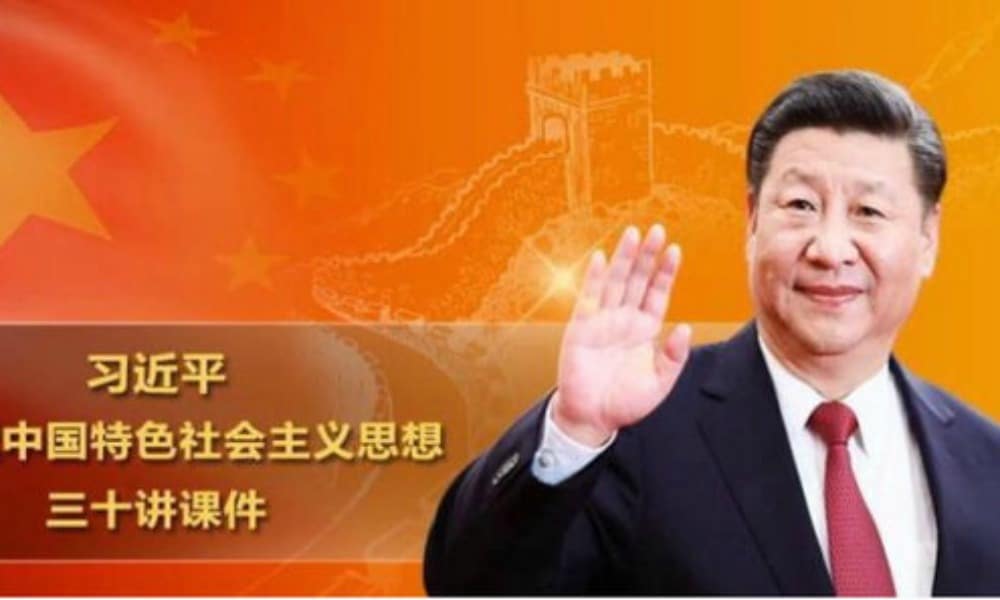
First published
A new app that encourages China’s online population to study Xi Jinping Thought has made headlines, both in and outside of China. Here’s everything you need to know about this new interactive propaganda tool. An overview by What’s on Weibo.
On January 1st, the Xué Xí Qiáng Guó app was launched on various Chinese app stores. The app is an initiative by the Propaganda Department of the Central Committee of the Communist Party, and is linked to the xuexi.cn platform, which was first set up in 2018.
The app has been making headlines in Chinese and English-language media this week. The BBC referred to the app as a “little red book,” and reported that members of the ruling Communist Party, as well as state-owned company employees who are not Party members, have allegedly been required to download and use it on a daily basis (Feb 15).
The Guardian reported that government officials in Fujian province and Qingdao city held workshops last month stressing the political importance of the app, and directing local leaders to promote the app across government departments (Feb 15).
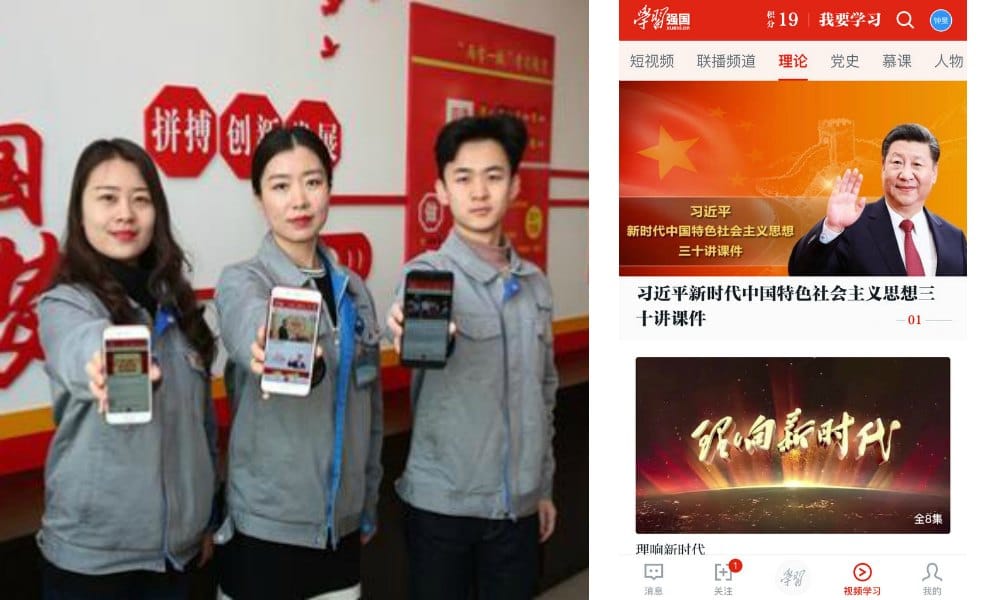
Although some reports claim that the app is making its way to top lists of most downloaded apps in China, it only scored a position 72 in the top 100 list of popular Chinese app store 360app at time of writing. The app store does state that the app has been downloaded 340000 times, with app users rating it with 2,5 stars out of 5. In the Tencent store, the app was downloaded 2,1 million times.
However, these numbers do not necessarily indicate much about the total number of downloads, since the app can be directly downloaded as an APK file from various locations. In the Chinese Apple store, the app is now the number one scoring app in the educational category. The app is only available in Chinese, and is not available from the Google Play store or Apple stores outside of China.
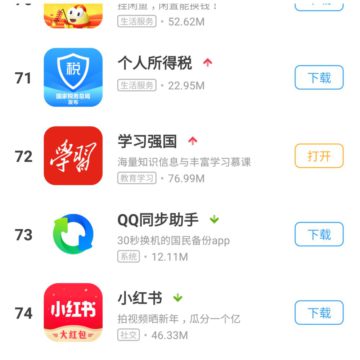
The app’s name (学习强国) is translated as the ‘Study Xi Strong Country’ app in various English-language media reports, but a more suitable translation would perhaps be ‘Study Xi, Strengthen China.’1 There’s a wordplay in the name, since the Mandarin word for ‘studying’ is ‘xuéxí’ which also incorporates the name of Xi, and in this context means both ‘Studying’ as well as ‘Study Xi.’
The main slogan of the ‘Study Xi’ app is one of Xi’s own sayings: “Dreams start with studying, careers start from doing” (“梦想从学习开始,事业从实践起步”, loose translation). Both the idea of ‘Dreams’ and of ‘Studying’ are concepts that are consistently promoted in the Xi era, with the idea that the common dream of the people is the ‘Chinese Dream’ of bringing about the “great rejuvenation of the Chinese nation.” Within this Chinese dream, studying is generally promoted as a “secret weapon” that will strengthen the Party and the nation (Xiao 2016).
A Multi-Functional Propaganda Tool
So what is the ‘Study Xi, Strengthen China’ app? It basically is a multi-functional educational platform that offers users various ways to study Xi Jinping Thought, Party history, Chinese culture, history, and much more. Once people are registered on the app, they can also access the platform via PC.
An important part of the app is its news feed: its home page features “recommended” reads that all focus on Xi Jinping and the Party. Another major feature is its ‘quiz’ page: every week, there are different quizzes that users can do, relating to all sorts of things, from Party ideology to famous Chinese poems.
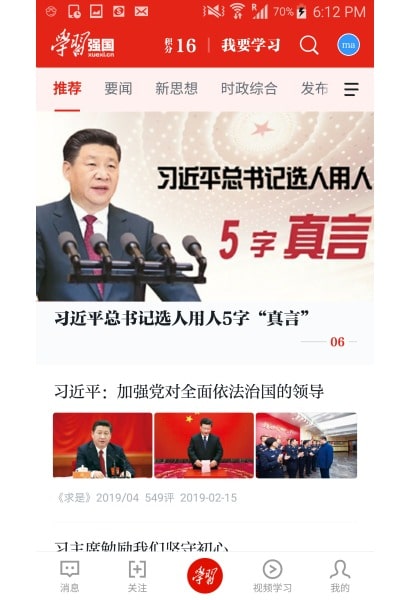
We’ve listed some of the app’s functions below. It is much more than a media app alone; it also has a social function, that allows users to connect with friends, message them, call them, and even send them ‘red envelopes’ (money presents).
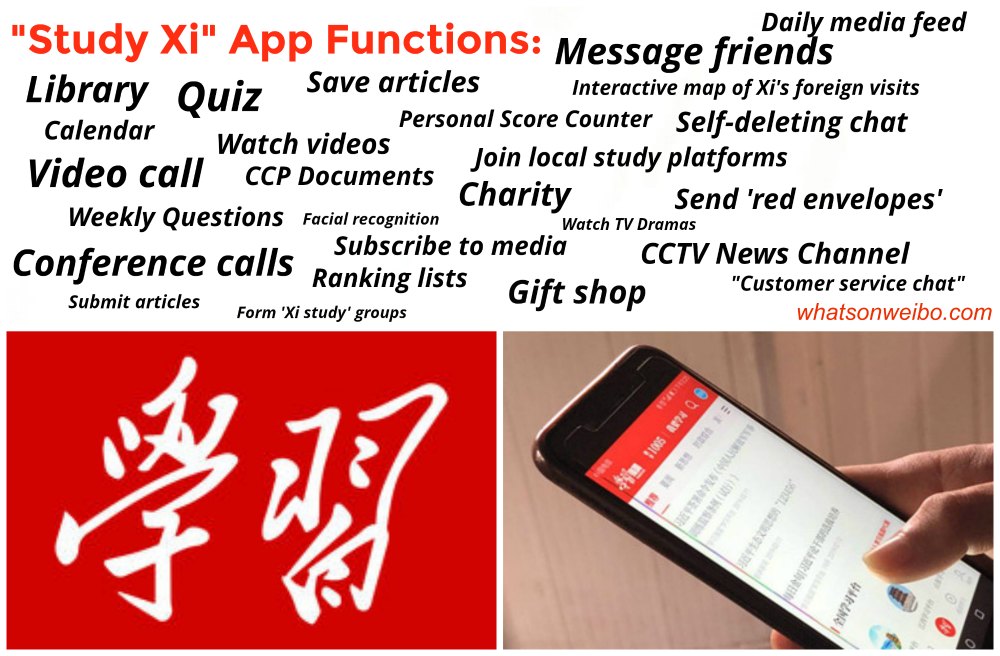
The ‘red envelope’ function is made possible through Alipay, the online payment platform that is owned by Ant Financial Services Group, an affiliate company of the Chinese Alibaba Group.
One way for users to verify their identity on the app is also by linking it to their Alipay account. Various media reports also claim that the app is linked to Alibaba’s Ding Ding platform, an enterprise chat app that has a multitude of functions, many of which are also incorparated in the ‘Study Xi’ app (for more about Ding Ding, see our article here).
Given the cooperation with Alibaba, it is perhaps not surprising that upon registering for the app with just my phone number, it already knew my nickname without me putting it in. The app also listed an old smartphone I used some two years ago as a “frequently used” device, although I had just downloaded the app the day before and had never registered for it before.
So I just registered for the first time for the new “Study Xi Strong Country” app, which requires a phone number. It then told me “hi manyapan,” and that this phonenumber was already registered for the app. I’ve never registered before and never put in my manyapan nickname. 🤔 pic.twitter.com/8WQWq3D46T
— Manya Koetse (@manyapan) 16 februari 2019
“Study Xi” app day two. Not only did the app know my nickname upon registering for 1st time, it also lists a HTC phone I used some two years ago under “frequently used devices.” Most likely imports data from Alipay app. pic.twitter.com/qQ9Sdgk3Fp
— Manya Koetse (@manyapan) 17 februari 2019
Twitter user @yanshitou12 also noted that, upon using a friend’s number to register for the app, her Ding Ding conversations were automatically loaded into the chat history, suggesting that Alibaba’s Ding Ding is indeed fully integrated with the app.
My phone cn number expired, so I used friend’s number. The app automatically loaded her conversation history from the app 针针, on my phone, without even asking
— 盐石头 (@yanshitou12) 16 februari 2019
Like Ding Ding, the ‘Study Xi’ app also allows users to set up conference calls, send ‘self-deleting’ chats (like Snapchat), and use the app’s calendar function. Its many practical functions make this an app that is especially convenient for China’s 89,5 million Party members to stay close to the Party and its activities.
How to Score with Xi
The app’s most noteworthy and perhaps also most appealing feature is its scoring system, since it turns studying Party ideology and Xi Jinping Thought into a game.
Those who accumulate enough points can get an item from the app’s ‘prize shop.’ There are also contests which users can join to compete over a Huawei tablet or other items.
One Weibo user shared that she had just received her Modern Chinese Dictionary by mail through the app’s ‘gift shop,’ another person expressed her surprise that a delivery man came to deliver her prize at her door. “Thank you, Propaganda Department!”, she wrote.
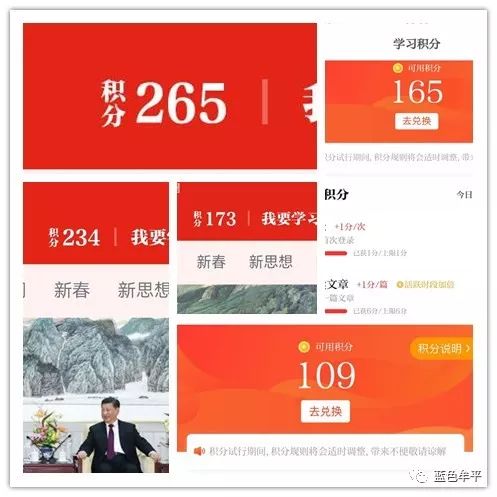
The score system works as follows:
- Upon registering for the app, you receive 1 point.
- For every article or essay one reads, you get 1 point (one per article, does not work with articles that have already been viewed before).
- For every video you watch you get 1 point (the same video won’t be credited with an extra point if you see it twice).
- The time you spend on the app is also rewarded with points: for every 4 minutes of reading, you get 1 point (max 8 points per day).
- For every 5 minutes of watching a video, you get 1 point (max 8 points per day).
- You get 1 point for “subscribing” to a media account, which will then show up in your news feed.
- If you share two articles with friends, you get 1 point.
- You get 1 point for every two articles or essays you ‘save’ within the app.
- If you score 100% on a quiz, you get 10 points.
What is quite remarkable about the app, is that it encourages users to ‘Study Xi’ at particular times of the day. The morning 6:00-8:30 timeframe, along with the 12:00-14:00 slot and evening 20:00-22:30 times, are designated as so-called “active time slots” during which users can score double points for their activities. Within these time slots, reading an article would, for example, grant a user 2 points instead of 1.
This signals that, in line with good working morale, people are supposed to look into the app during their morning commute, their lunch break, and before bedtime, and are indirectly discouraged from using it during (office) working hours.
The points that are scored on the app will be valid for two years.
On Weibo, some netizens are quite serious about the ‘gaming’ aspect of this app, and have already found ways to cheat the system. They share tips and tricks on how to score within the app: points are credited within 10 seconds of clicking an article, for example, and watching videos can be easily rewarded with a point if one immediately scrolls to the end.
Through the PC version of the app, it is easy to let certain videos play while scrolling the internet, basically earning points without actually watching the videos.
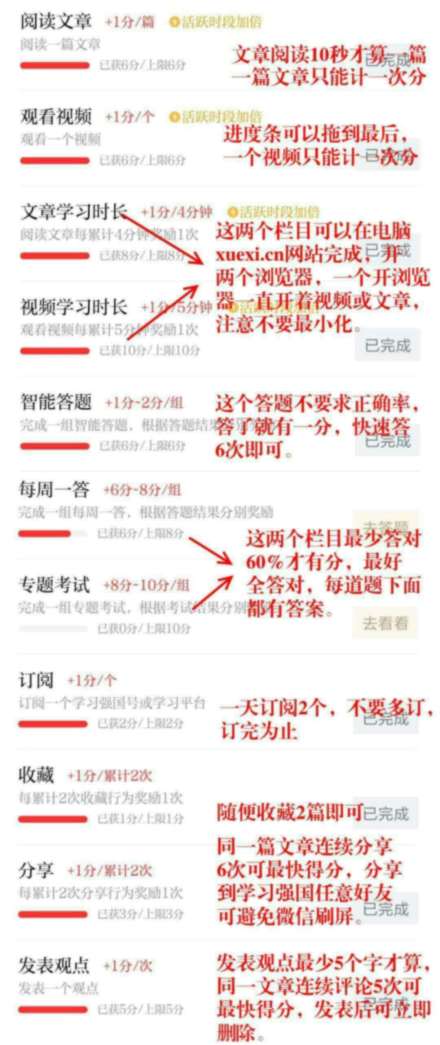
“Thanks,” many commenters reply to these cheating tricks: “Just what I was looking for.” “I already received 50 points in one day!”
A Library in Your Pocket: Media, Books, Movies
The ‘Study Xi’ app focuses on some dozen media outlets that users can subscribe to and which also show up in the ‘recommended’ homepage feed.
Incorporated in the app are state media outlets China Daily (中国日报网), People’s Daily (人民网), Xinhua (新华), Qiushi Journal (求是网), China Military Web (中国军网), Economic Daily (经济日报), and others.
The app also incorporates local ‘Study Xi’ platforms, from Hubei to Jiangxi, from Shandong to Fujian.

Besides these media, the app also has TV channels people can watch videos on, from CCTV News to a special ‘Xi Time’ news programme, to various TV dramas, including Turbulence of the Mu Clan (木府风云) and Romance of Our Parents (父母爱情).
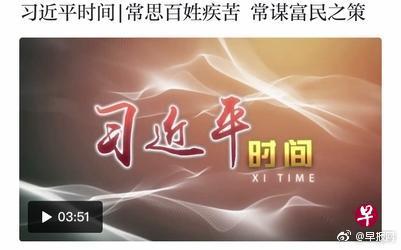
“Xi Time” news clips focus on the activities of Xi Jinping.
There is also a movie section within the app, where users can watch classics such as The Long March (长征), The Founding Ceremony of the Nation (开国大典), films on Deng Xiaoping or Zhou Enlai, and various movies that focus on the Second Sino-Japanese War.
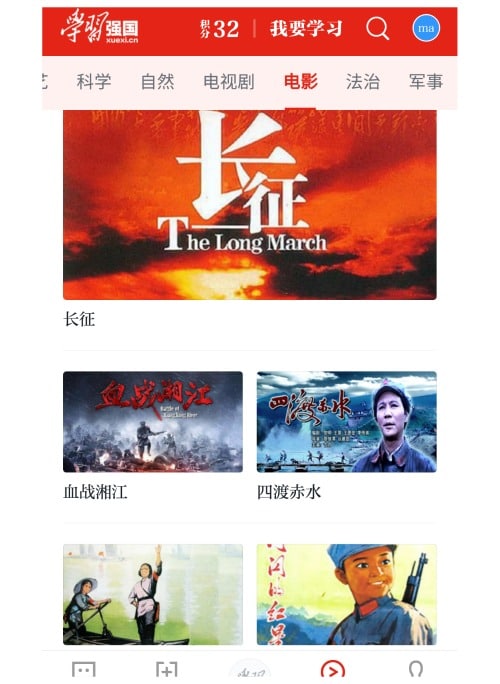
The ‘Study Xi’ library section grants users access to dozens of books. On the desktop version, the library is shown as an actual office, where you can click on the books that are displayed on the shelves and read them.

Some books are those by Xi Jinping, including The Governance of China (习近平谈治国理政), but there are also books by the famous Chinese author Lu Xun, or the 20th-century classic Rickshaw Boy by Lao She, and various works on calligraphy and poetry.
There is also an entire section of books available from a whole range of topics varying from astronomy to maths, biology, and geography. The books are available for online reading in pdf.
In general, you could say that the selection of media, videos, and books all fall into the categories of Chinese traditional culture and canonical literature, historical themes, science and technology, and the political themes of Party ideology and the Xi Jinping Thought that focuses on ‘socialism with Chinese characteristics’ (中国特色社会主义).
Those who read enough state media and Party articles will easily be able to do the quizzes and weekly questions in the app. Besides the standard ideological questions, it also draws from popular culture; I came across a question that used a trailer of China’s latest sci-fi movie The Wandering Earth that needed to be watched in order to complete the question.
Propaganda in the Xi Era
So how popular is the app, really? If the headlines in Chinese and non-Chinese media are to be believed, the majority of Chinese internet users are getting hooked on the app. That picture is perhaps the rose-colored one the Party would like to envision, but judging from social media comments and app ratings, reactions have been somewhat lukewarm.
On Weibo, there are some commenters who are sharing their 1000-point status on the app, or who say they enjoy looking into the app right before sleeping.
Dozens of commenters indicate that they have to assist their parents in using the app, or that it is not them, but their parents who are ‘hooked’ on the app – the majority of Weibo users are in the 20-35 years age group.
There are local trainings on making (older) Party members more familiar with the app, how to download it and how to use it. A local Chongqing community Weibo account recently posted the pictures below of their ‘Study Xi’ gathering.
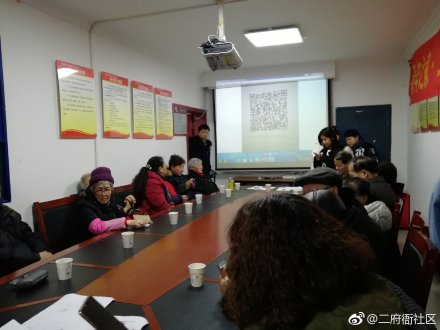
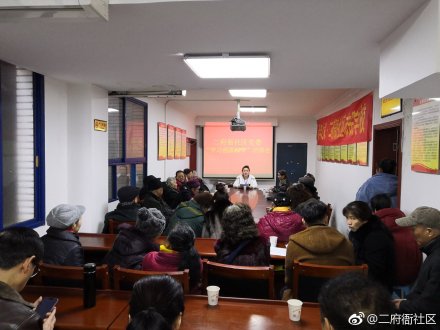
On social media, some commenters complain about the fact that the Chinese Apple store has turned off the review comment sections on the app, despite the fact that it allegedly scored a number one spot in its “educational app” section.
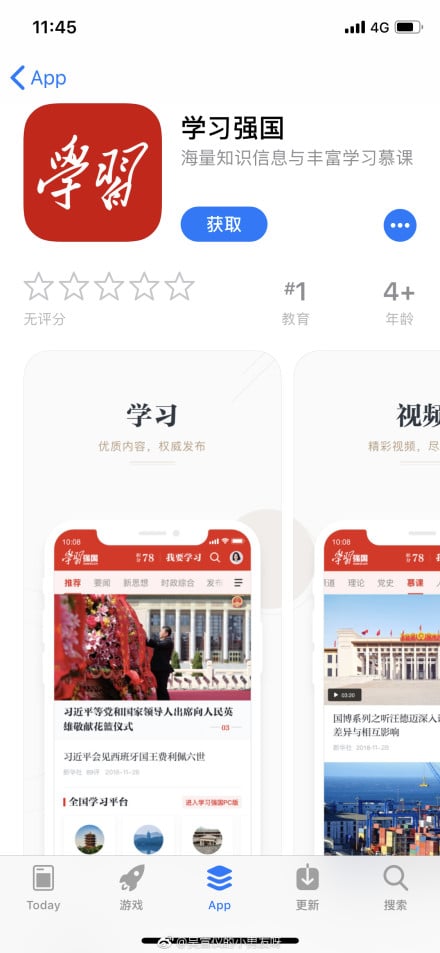
Then there are also dozens of commenters who say they often use the app: the score matters to them. In a time when everything is mobile, and online gaming is booming, it seems that ‘Study Xi, Strengthen China’ has made its app all the more relevant by adding the scoring element.
In doing so, the Propaganda Department of the Communist Party is continuing on the same route it has taken for the past couple of years, which shows a clear break with the propaganda machine before the Xi era.
Not only does the propaganda in the Xi era strengthen the idea of Xi as a political idol, it also fully embraces the Internet, the online media environment, and its related pop culture in doing so (also see Chang & Ren 2018).
Since 2017, various noteworthy propaganda moments, such as the 2017 Xi Clapping Game, the cartoonification of Xi, or the One Belt, One Road media publicity hype, all point in the same direction, namely that the Party propaganda will use the modes of communication and technology that are most popular among China’s (younger) online population to reach their audiences.
For now, I am still stuck below 50 points on the ‘Study Xi’ app. The scoring element is powerful: I feel triggered to get my score up. Maybe watch a few more videos, do better on the quiz, and read some more state media articles. I might just be tempted to go back for some more Xi-studies.
By Manya Koetse
Follow @whatsonweibo
1Translation suggested by Helen Wang @helanwanglondon.
References
Chang, J., & Ren, H. 2018. “The powerful image and the imagination of power: the ‘new visual turn’ of the CPC’s propaganda strategy since its 18th National Congress in 2012. Asian Journal of Communication, 28(1), 1–19.
Xiao Junhua 肖君华. 2016. “Dreams Start with Learning – Studying General Secretary Xi Jinping’s Important Discourse on Learning [梦想从学习开始——学习习近平总书记关于学习的重要论述]” Guangming Daily, via CPC News, 7 July http://theory.people.com.cn/n1/2016/0707/c376186-28531506.html [18.1.19].

Directly support Manya Koetse. By supporting this author you make future articles possible and help the maintenance and independence of this site. Donate directly through Paypal here. Also check out the What’s on Weibo donations page for donations through creditcard & WeChat and for more information.
Spotted a mistake or want to add something? Please let us know in comments below or email us.
©2019 Whatsonweibo. All rights reserved. Do not reproduce our content without permission – you can contact us at info@whatsonweibo.com.
Manya is the founder and editor-in-chief of What's on Weibo, offering independent analysis of social trends, online media, and digital culture in China for over a decade. Subscribe to gain access to content, including the Weibo Watch newsletter, which provides deeper insights into the China trends that matter. More about Manya at manyakoetse.com or follow on X.

China Brands, Marketing & Consumers
Hasan Piker’s China Trip & the Unexpected Journey of a Chinese School Uniform to Angola
Hasan Piker’s controversial China tour, a Chinese school uniform resurfaces in Africa, a new winter hotspot, why Chinese elites ‘run’ to Tokyo, and more.
Published
3 months agoon
November 21, 2025
🌊 Signals — Week 47 (2025)
Part of Eye on Digital China, Signals highlights slower trends and online currents behind the daily scroll. This edition was sent to paid subscribers — subscribe to receive the next issue in your inbox.
Welcome to another edition of Eye on Digital China. Different from the China Trend Watch (check the latest one here if you missed it), this edition, part of the new Signals series, is about the slower side of China’s social media: the recurring themes and underlying shifts that signal broader trends beyond the quick daily headlines. Together with the deeper dives, the three combined aim to give you clear updates and a fuller overview of what’s happening in China’s online conversations & digital spaces.
For the coming two weeks, I’ll be traveling from Beijing to Chongqing and beyond (more on that soon) so please bear with me if my posting frequency dips a little. I’ll be sure to pick it up again soon and will do my best to keep you updated along the way. In the meantime, if you know of a must-try hotpot in Chongqing, please do let me know.
In this newsletter: Hasan Piker’s controversial China tour, a Chinese school uniform in Angola, a new winter hotspot, discussions on what happens to your Wechat after you die, why Chinese elites rùn to Tokyo, and more. Let’s dive in.
- 💰 The richest woman in China, according to the latest list by Hurun Research Institute, is the “queen of pharmaceuticals” Zhong Huijuan (钟慧娟) who has accumulated 141 billion yuan (over 19 billion USD). Women account for over 22% of Chinese billionaires (those with more than 5 billion RMB), underscoring China’s globally leading position in producing wealthy female entrepreneurs.
- 🧩 What happens to your WeChat after you die? A user who registered for NetEase Music with a newly reassigned phone number unexpectedly gained access to the late singer Coco Lee’s (李玟) account, as the number had originally belonged to her. The incident has reignited debate over how digital accounts should be handled after death, prompting platforms like NetEase and Tencent to reconsider policies on long-inactive accounts and take stronger measures to protect them.
- 📱 Although millions of viewers swoon over micro-dramas with fantasy storylines where rich, powerful men win over the “girl next door” through money and status, Chinese regulators are now stepping in to curb exaggerated plots featuring the so-called “dominant CEO” (霸道总裁) archetype, signaling stricter oversight for the booming short drama market.
- ☕ A popular Beijing coffee chain calling itself “People’s Cafe” (人民咖啡馆), with its style and logo evoking nationalist visual nostalgia, has changed its name after facing criticism for building its brand – including pricey coffee and merchandise – on Mao era and state-media political connotations. The cafe is now ‘Yachao People’s Cafe’ (要潮人民咖啡馆).
- 👀 Parents were recently shocked to see erotic ads appear on the Chinese nursery rhymes and children’s learning app BabyBus (宝宝巴士), which is meant for kids ages 0–8. BabyBus has since apologized, but the incident has sparked discussions about how to keep children safe from such content.
- 🧧The 2026 holiday schedule has continued to be a big topic of conversation as it includes a 9-day long Spring Festival break (from February 15 to February 23), making it the longest Lunar New Year holiday on record. The move not only gives people more time for family reunions, but also gives a huge boost to the domestic travel industry.
Hasan Piker’s Chinese Tour & The US–China Content Honeymoon

Livestreamer Hasan Piker during his visit to Tiananmen Square flag-rising ceremony.
It’s not time for the end-of-year overviews just yet – but I’ll already say that 2025 was the US–China ‘honeymoon’ year for content creation. It’s when China became “cool,” appealing, and eye-grabbing for young Western social media users, particularly Americans. The recent China trip of the prominent American online streamer Hasan Piker fits into that context.
This left-wing political commentator also known as ‘HasanAbi’ (3 million followers on Twitch, recently profiled by the New York Times) arrived in China for a two-week trip on November 11.

Piker screenshot from the interview with CGTN, published on CGTN.
His visit has been controversial on English-language social media, especially because Piker, known for his criticism of America (which he calls imperialist), has been overly praising China: calling himself “full Chinese,” waving the Chinese flag, joining state media outlet CGTN for an interview on China and the US, and gloating over a first-edition copy of Quotations from Chairman Mao (the Little Red Book). He portrays China as heavily misrepresented in the West and as a country the United States should learn from.

Hasan Piker did an interview with CGTN, posing with Li Jingjing 李菁菁.
During his livestreaming tour, Hasan, who is nicknamed “lemonbro” (柠檬哥) by Chinese netizens, also joined Chinese platforms Bilibili and Xiaohongshu.
But despite all the talk about Piker in the American online media sphere, online conversations, clicks, and views within China are underwhelming. As of now, he has around 24,000 followers on Bilibili, and he’s barely a topic of conversation on mainstream feeds.
Piker’s visit stands in stark contrast to that of American YouTuber IShowSpeed (Darren Watkins), who toured China in March. With lengthy livestreams from Beijing to Chongqing, his popularity exploded in China, where he came to be seen by many as a representative of cultural diplomacy.

IShowspeed in China, March 2025.
IShowSpeed’s success followed another peak moment in online US–China cultural exchange. In January 2025, waves of foreign TikTok users and popular creators migrated to the Chinese lifestyle app Xiaohongshu amid the looming TikTok ban.
Initially, the mass migration of American users to Xiaohongshu was a symbolic protest against Trump and US policies. In a playful act of political defiance, they downloaded Xiaohongshu to show they weren’t scared of government warnings about Chinese data collection. (For clarity: while TikTok is a made-in-China app, it is not accessible inside mainland China, where Douyin is the domestic version run by the same parent company).
The influx of foreigners — who were quickly nicknamed “TikTok refugees” — soon turned into a moment of cultural celebration. As American creators introduced themselves, Chinese users welcomed them warmly, eager to practice English and teach newcomers how to navigate the app. Discussions about language, culture, and societal differences flourished. Before long, “TikTok refugees” and “Xiaohongshu natives” were collaborating on homework assignments, swapping recipes, and bonding through humor. It was a rare moment of social media doing what we hope it can do: connect people, build bridges, and replace prejudice with curiosity.
Some of that same enthusiasm was also visible during IShowSpeed’s China tour. Despite the tour inevitably getting entangled with political and commercial interests, much of it was simply about an American boy swept up in the high energy of China’s vibrant cities and everything they offer.
Different from IShowSpeed, who is known for his meme-worthy online presence, Piker is primarily known for his radical political views. His China enthusiasm feels driven less by cultural curiosity and more by his critique of America.
Because of his stances — such as describing the US as a police state — it’s easy for Western critics to accuse him of hypocrisy in praising China, especially after a brief run-in with security police while livestreaming at Tiananmen Square.
Seen in broader context, Piker’s China trip reflects a shift in how China is used in American online discourse.
Before, it was Chinese ‘public intellectuals’ (公知) who praised the US as a ‘lighthouse country’ (灯塔国), a beacon of democracy, to indirectly critique China and promote a Western modernization model. Later, Chinese online influencers showcased their lives abroad to emphasize how much ‘brighter the moon’ was outside China.
In the post-Covid years, the current reversed: Western content creators, from TikTok influencers to political commentators, increasingly use China to make arguments that are fundamentally about America.
Between these cycles, authentic cultural curiosity gets pushed to the sidelines. The TikTok-refugee moment in early January may have been the closest we’ve come in years: a brief window where Chinese and American users met each other with curiosity, camaraderie, and creativity.
Hasan’s tour, in contrast, reflects a newer phase, one where China is increasingly used as a stage for Western political identity rather than a complex and diverse country to understand on its own terms. I think the honeymoon phase is over.
“Liu Sihan, Your School Uniform Ended Up in Angola”: China’s Second-Hand Clothing in Africa

A Chinese school uniform went viral after a Chinese social media user spotted it in Angola.
“Liu Sihan, your schooluniform is hot in Africa” (刘思涵你的校服在非洲火了) is a sentence that unexpectedly trended after a Chinese blogger named Xiao Le (小乐) shared a video of a schoolkid in Angola wearing a Chinese second-hand uniform from Qingdao Xushuilu Primary School, that had the nametag Liu Sihan on it.
The topic sparked discussions about what actually happens to clothing after it’s donated, and many people were surprised to learn how widely Chinese discarded clothing circulates in parts of Africa.
Liu Sihan’s mother, whose daughter is now a 9th grader in Qingdao, had previously donated the uniform to a community clothing donation box (社区旧衣回收箱) after Liu outgrew it. She intended it to help someone in need, never imagining it to travel all the way to Africa.
In light of this story, one netizen shared a video showing a local African market selling all kinds of Chinese school items, including backpacks, and people wearing clothing once belonging to workers for Chinese delivery platforms. “In Africa, you can see school uniforms from all parts of China, and even Meituan and Eleme outfits,” one blogger wrote.
When it comes to second-hand clothing trade, we know much more about Europe–Africa and US–Africa flows than about Chinese exports, and it seems there haven’t been many studies on this specific topic yet. Still, alongside China’s rapid economic transformations, the rise of fast fashion, and the fact that China is the world’s largest producer and consumer of textiles, the country now has an enormous abundance of second-hand clothing.
According to a 2023 study by Wu et al. (link), China still has a long way to go in sustainable clothing disposal. Around 40% of Chinese consumers either keep unwanted clothes at home or throw them away.
But there may be a shift underway. Donation options are expanding quickly, from government bins to brand programs, and from second-hand stores to online platforms that offer at-home pickup.

Chinese social media users posting images of school/work uniforms from China worn by Africans.
As awareness grows around the benefits of donating clothing (reducing waste, supporting sustainability, and the emotional satisfaction of giving), donation rates may rise significantly. The story of Liu Sihan’s uniform, which many found amusing, might even encourage more people to donate. And if that happens, scenes of African children (and adults) wearing Chinese-donated clothes may become much more common than they now are.
Laojunshan: New Hotspot in Cold Winter

Images from Xiaohongshu, 背包里的星子, 旅行定制师小漾
Go to Zibo for BBQ, go to Tianshui for malatang, go to Harbin for the Ice Festival, cycle to Kaifeng for soup dumplings, or head to Dunhuang to ride a camel — over recent years, a number of Chinese domestic destinations have turned into viral hotspots, boosted by online marketing initiatives and Xiaohongshu influencers.
This year, Laojunshan is among the places climbing the trending lists as a must-visit spot for its spectacular snow-covered landscapes that remind many of classical Chinese paintings. Laojunshan (老君山), a scenic mountain in Henan Province, is attracting more domestic tourists for winter excursions.
Xiaohongshu is filled with travel tips: how to get there from Luoyang station (by bus), and the best times of day to catch the snow in perfect light (7–9 AM or around 6–6:30 PM).
With Laojunshan, we see a familiar pattern: local tourism bureaus, state media, and influencers collectively driving new waves of visitors to the area, bringing crucial revenue to local industries during what would otherwise be slower winter months.
WeChat New Features & Hong Kong Police on Douyin
🟦 WeChat has been gradually rolling out a new feature that allows users to recall a batch of messages all at once, which saves you the frantic effort of deleting each message individually after realizing you sent them to the wrong group (or just regret a late-night rant). Many users are welcoming the update, along with another feature that lets you delete a contact without wiping the entire chat history. This is useful for anyone who wants to preserve evidence of what happened before cutting ties.

🟦The Hong Kong Police Force recently celebrated its two-year anniversary on Douyin (the Chinese version of TikTok), having accumulated nearly 5 million followers during that time. To mark the occasion, they invited actor Simon Yam to record a commemorative video for their channel (@香港警察). The presence of the Hong Kong Police on the Chinese app — and the approachable, meme-friendly way they’ve chosen to engage with younger mainland audiences — is yet another signal of Hong Kong institutions’ strategic alignment with mainland China’s digital infrastructure, a shift that has been gradually taking place. The anniversary video proved popular on Douyin, attracting thousands of likes and comments.
Why Chinese Elite Rùn to Japan (by ChinaTalk)
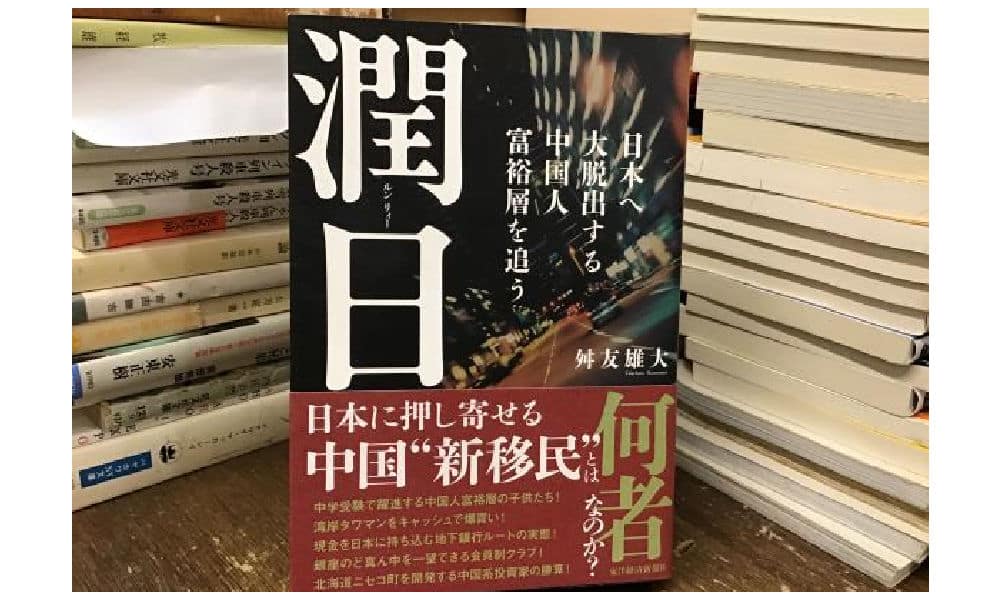
Over the past week, Japan has been trending every single day on Chinese social media in light of escalating bilateral tensions after Japanese PM Takaichi made remarks about Taiwan that China views as a direct military threat. The diplomatic freeze is triggering all kinds of trends, from rising anti-Japanese sentiment online and a ban on Japanese seafood imports to Chinese authorities warning citizens not to travel to Japan.
You’d think Chinese people would want to be anywhere but Japan right now — but the reality is far more nuanced.
In a recent feature in ChinaTalk, Jordan Schneider interviewed Japanese journalist & researcher Takehiro Masutomo (舛友雄大) who has just published a book about Japan’s new Chinese diaspora, explaining what draws Chinese dissidents, intellectuals, billionaires, and middle-class families to Tokyo.
The book is titled Run Ri: 潤日 Following the Footsteps of Elite Chinese Escaping to Japan (only available in Japanese and Traditional Chinese for now). (The word Rùn 润/潤, by the way, is Chinese online slang and meme expresses the desire to escape the country.)
A very interesting read on how Chinese communities are settling in Japan, a place they see as freer than Hong Kong and safer than the U.S., and one they’re surprisingly optimistic about — even more so than the Japanese themselves.
Thanks for reading this Eye on Digital China Signals. For fast-moving trends and deeper dives, keep an eye on the upcoming newsletters.
And if you just so happen to be reading this without a subscription and appreciate my work, consider joining to receive future issues straight in your inbox.
A small housekeeping note:
This Eye on Digital China newsletter is co-published for subscribers on both Substack and the main site. If you’re registered on both platforms, you’ll receive duplicate emails — so if that bothers you, please pick your preferred platform and unsubscribe from the other.
Many thanks to Miranda Barnes for helping curate some of the topics in this edition.
— Manya
Spotted an error or want to add something? Comment below or email me.
First-time commenters require manual approval.
©2025 Eye on Digital China / What’s on Weibo. Do not reproduce without permission —
contact info@whatsonweibo.com.
China Insight
“Jiangyou Bullying Incident”: From Online Outrage to Offline Protest
“You think we’re scared of you? It’s not like we haven’t been to jail before.”
Published
7 months agoon
August 6, 2025
These days have been filled with tension and anger in the city of Jiangyou (江油市), Sichuan, after a rare, large-scale protest broke out following public outrage over a severe bullying incident and how it was handled.
The bullying incident at the center of this story happened outside school premises in Mianyang on the afternoon of July 22. Footage of the assault, recorded by bystanders at the scene, began circulating widely online on August 2, sparking widespread outrage among concerned netizens, many of them worried parents.
The violent altercation involved three girls between the ages of 13 and 15 who ganged up on another minor, a 14-year-old girl named Lai (赖).
After Lai and a 15-year-old girl named Liu (刘) reportedly had a dispute, Liu gathered two of her friends—the 13-year-old also named Liu (刘) and a 14-year-old named Peng (彭)—to gang up on Lai.
The three underage girls lured Lai to an abandoned building, where they subjected her to hours of verbal and physical violence. The footage showed how they took turns in kicking, slapping, and pushing her.
At one point, after Lai said she would call the police, one of the bullies yelled: “You think we’re scared of you? It’s not like we haven’t been to jail before. I’ve been in more than ten times—it doesn’t even take 20 minutes to get out” (“你以为我们会怕你吗?又不是没进去过,我都进去十多次了,没二十分钟就出来了”).
That same night, the incident was reported to police. It took authorities until August 2 to bring in all involved parties for questioning, and a police report was issued on the morning of Monday, August 4.
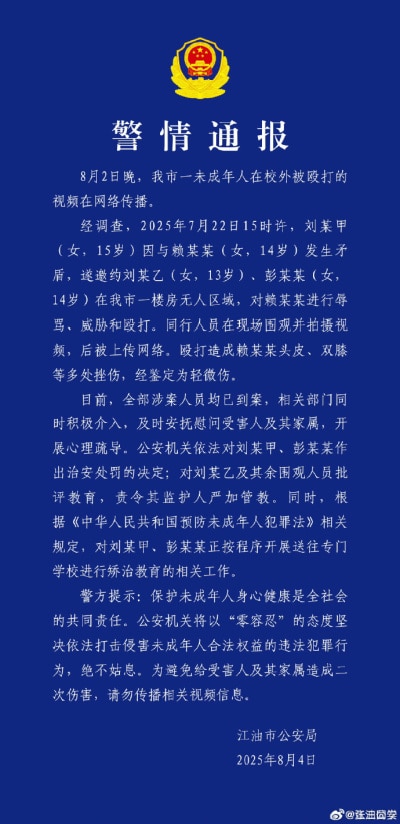
Police report by Jiangyou Public Security Bureau, confirming the details of the incident and the (legal) consequences for the attackers.
Two of the girls (the 15- and 14-year-old) were given administrative penalties and will be sent to a specialized correctional school. The younger Liu and other bystanders were formally reprimanded.
“Parents Speak Out for the Bullied Girl”
The way the incident was handled—not just the relatively late official report, but mostly the perceived lenient punishment—triggered anger online.
Many people who had seen the video responded emotionally and felt that the underage girls should be stripped of their rights to take their exams, and that the bullying incident should forever haunt them in the same way it will undoubtedly haunt their victim.
Especially the phrase “It’s not like I haven’t been taken in [to jail] before” struck a chord, as it showed just how calculated the bullies were—and how, by counting on the leniency of the Chinese judicial system for minors, they made the system complicit in their determination to turn those hours into a living hell for Lai.
China has been dealing with an epidemic of school violence for years. In 2016, Chinese netizens were already urging authorities to address the problem of extreme bullying in schools, partly because minors under the age of 16 rarely face criminal punishment for their actions.
Since 2021, children between the ages of 12 and 14 can be held criminally responsible for extreme and cruel cases resulting in death or disability—but their legal prosecution must first be approved by the Supreme People’s Procuratorate (SPP).
It has not done much to stop the violence.
Discussions around extreme bullying like this have repeatedly flared up over the years, such as in 2020, when a 15-year-old schoolboy named Yuan (袁) in Shaanxi was fatally beaten and buried by a group of minors.
Last year, a young boy named Wang Ziyao (王子耀) was killed by three classmates after suffering years of bullying. His body was found in a greenhouse just 100 meters from the home of one of the suspects, and the case shocked and enraged local residents.
But the problem is widespread among girls, too.
In 2016, we already reported on how so-called ‘campus violence videos’ (校园暴力视频) had become a concerning trend. In these kinds of videos—often showing multiple bullies beating up a single victim on camera—it’s not uncommon to see girls as the aggressors.
Girls often form cliques to gang up on a victim to show that they are in control or to gain popularity. They also tend to be more inclined than boys to make cruel jokes or stage pranks meant to embarrass or humiliate their target. This may partly explain why there seem to be more campus violence videos on Chinese social media showing girls bullying girls than boys bullying boys.
In the case of Lai, she appears to have been particularly vulnerable. One of her relatives posted online that her mother is deaf and mute, and her father allegedly is disabled. This fact may have contributed to why Lai was repeatedly targeted and bullied by the same group of girls, who reportedly took away her phone and socially isolated her at school.
In response to the incident, netizens started posting the hashtag “Parents Speak Up for the Bullied Girl” (“#家长们为被霸凌女孩发声#), not only to support Lai and her family, but to demand harsher punishments for school bullies and for stricter crackdown on this nationwide problem.
From Online Anger to Offline Protest
While many people spoke out for Lai online, hundreds also wanted to show up for her in person.
On August 4, dozens of people gathered in front of the Jiangyou Municipal Government building (江油市人民政府) to demand justice and support Lai’s parents, who had come to express their grievances to the authorities—at one point even bowing to the ground in a plea for justice to be served for their daughter.

Footage and images circulating on social media showing the parents of Lai, the victim, bowing on the ground to demand justice from authorities.
As the crowd grew larger, tensions escalated, eventually leading to clashes between protesters and police.
The arrests at the scene did little to ease the situation. As night fell, the mood grew increasingly grim, and some protesters began throwing objects at the police.

Images of the protest, posted on Weibo.
Near the east section of Shixian Road (诗仙路东段), more people gathered. Hundreds of individuals filming and livestreaming captured footage of the police crackdown—officers beating protesters, dragging them away, and deploying pepper spray.

Netizens’ digital artwork about the bullying incident, the parents’ grievances, and the public protest and its crackdown in Jiangyou. Shared by 程Clarence.
Although the protests briefly gained traction on social media and became a trending topic on Weibo, the search term was soon removed from the platform’s trending list.
Lasting Mental Scars
On Tuesday, August 5, several topics related to the Jiangyou bullying incident began trending again on Chinese social media.
On the short video app Kuaishou, a collective demand for justice surged to the number one spot, under the tag “A large number of Jiangyou parents demand justice for the victim” (江油大批家长为受害学生讨公道).
As of now, none of the perpetrators’ families have come forward to apologize.
As for Lai—according to the latest reports, she did not suffer serious physical injuries from the bullying incident, but according to her own parents, the mental scars will last. She will need continued mental health support and counseling going forward.
Although many posts about the incident and the ensuing protests have been taken offline, ‘Jiangyou’s Bullying Incident’ has already become one more case in the growing list of brutal school bullying incidents that have surfaced on Chinese social media in recent years. The heat of local anger may fade over time, but the rising number of such cases continues to fuel public frustration nationwide—especially if local authorities fail to do more to address and prevent school bullying.
“Not being able to protect our children, that’s a disgrace to our schools and the police,” one commenter wrote: “I want to thank all those mothers who have raised their voices for the bullied child. Each of us must say no to bullies, and we must do all we can to stop them. I hope the lawmakers agree.”
By Manya Koetse
(follow on X, LinkedIn, or Instagram)
Spotted a mistake or want to add something? Please let us know in comments below or email us. First-time commenters, please be patient – we will have to manually approve your comment before it appears.
©2025 Whatsonweibo. All rights reserved. Do not reproduce our content without permission – you can contact us at info@whatsonweibo.com.
Subscribe
Eye on Digital China is a reader-supported publication by
Manya Koetse (@manyapan) and powered by What’s on Weibo.
It offers independent analysis of China’s online culture, media, and social trends.
To receive the newsletter and support this work, consider
becoming a paid subscriber.

Get in touch
Have a tip, story lead, or book recommendation? Interested in contributing? For ideas, suggestions, or just a quick hello, reach out here.

Inside Chunwan 2026: China’s Spring Festival Gala

The Fake Patients of Xiangyang: Hospital Scandal Shakes Welfare System Trust

China Trend Watch: Takaichi’s Win, Olympic Tensions, and “Tapping Out”

Spending the Day in China’s Wartime Capital

Chinamaxxing and the “Kill Line”: Why Two Viral Trends Took Off in the US and China

Trump, Taiwan & The Three-Body Problem: How Chinese Social Media Frames the US Strike on Venezuela

From a Hospital in Crisis to Chaotic Pig Feasts

Hong Kong Fire Updates, Nantong’s Viral Moment & Japanese Concert Cancellations

Chinamaxxing and the “Kill Line”: Why Two Viral Trends Took Off in the US and China

China’s 2025 Year in Review in 12 Phrases
Popular Reads
-

 Chapter Dive7 months ago
Chapter Dive7 months agoHidden Cameras and Taboo Topics: The Many Layers of the “Nanjing Sister Hong” Scandal
-

 Chapter Dive10 months ago
Chapter Dive10 months agoUnderstanding the Dr. Xiao Medical Scandal
-

 China Insight7 months ago
China Insight7 months ago“Jiangyou Bullying Incident”: From Online Outrage to Offline Protest
-

 Chapter Dive10 months ago
Chapter Dive10 months agoChina Is Not Censoring Its Social Media to Please the West






